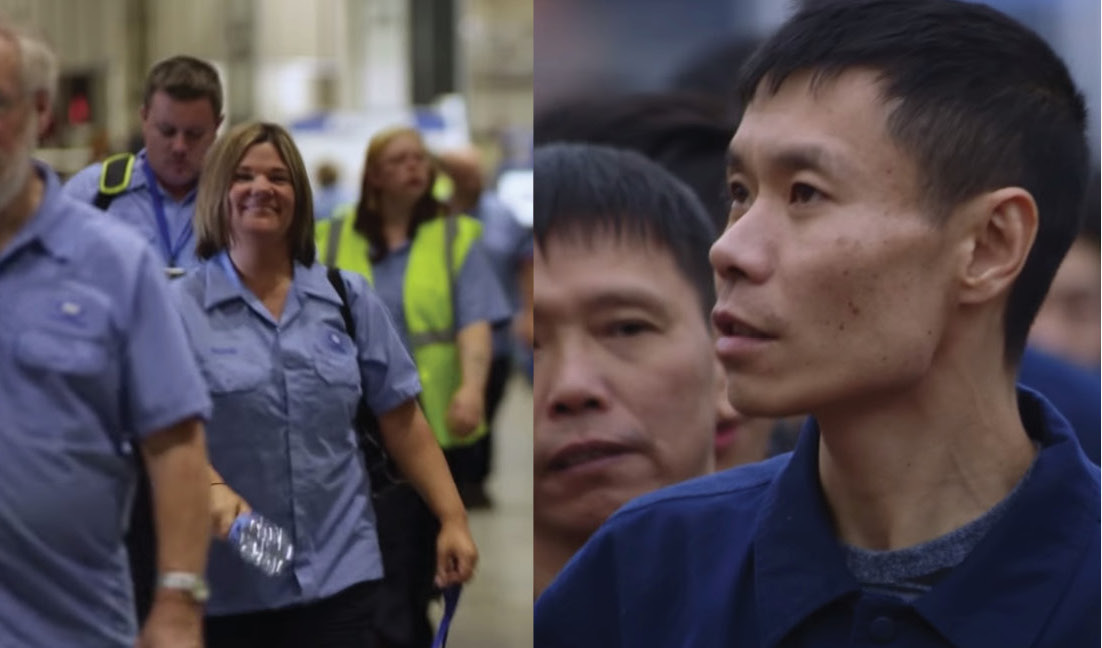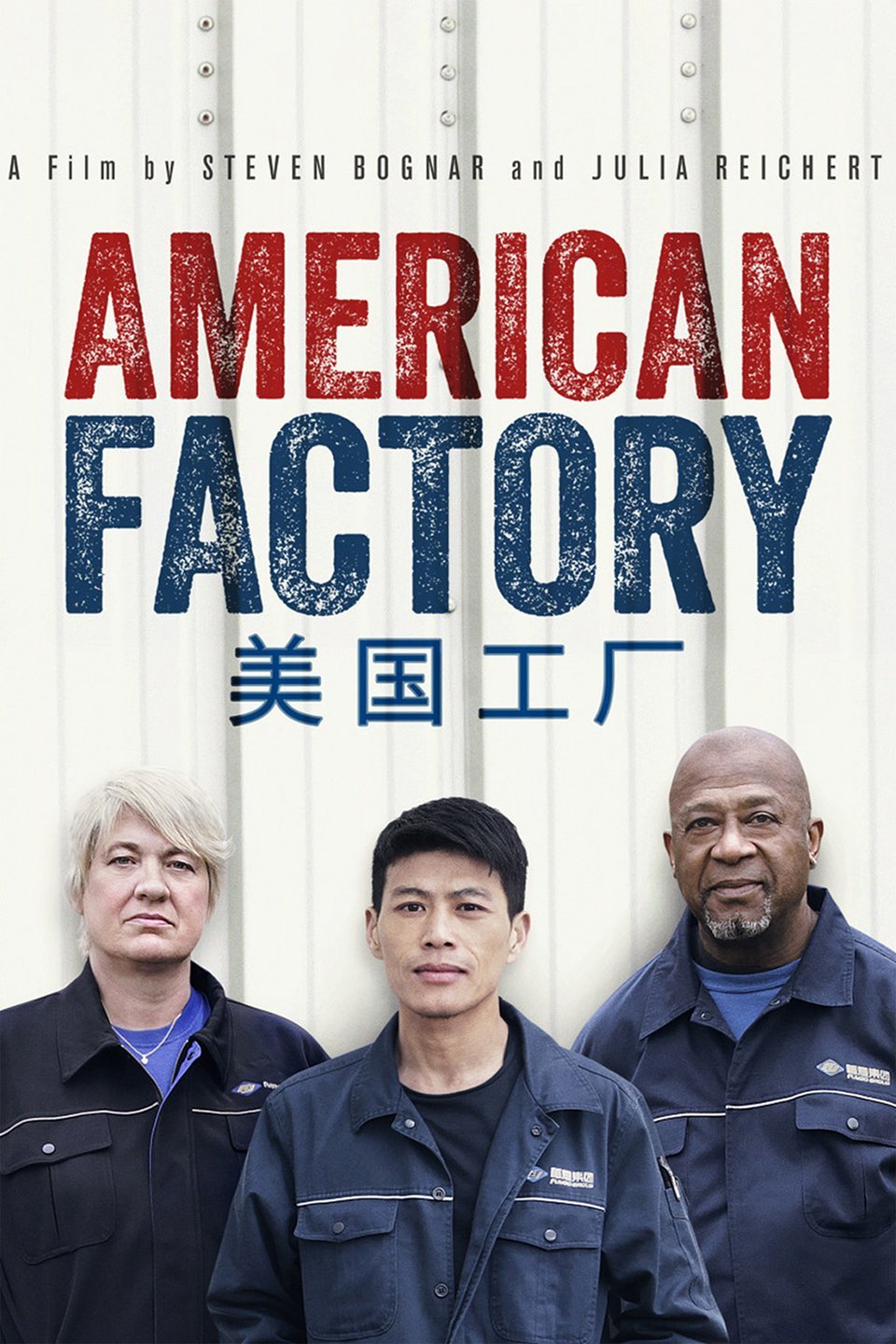‘American Factory,’ reviewed

On a wintry day in December 2008, a GM factory outside of Dayton, Ohio, is shuttered — the latest victim of the pitiless Financial Crisis that ushered in the Great Recession. Thousands of jobs are lost. But then, a few years later, there is a glimmer of hope: A Chinese company acquires the plant, transforming it into a modern facility for the manufacture of automotive glass. Fuyao Glass America rides in, and they’re hiring. The non-union wages on offer might be only half of what the American workers once took home, but it’s a chance to rebuild a devastated community. A buoyant crew of Americans and Chinese hoist the sails of optimism.
It’s not hard to guess what comes next. A yawning cultural chasm, deep attitudinal differences, and glaring blind spots on both sides raise daunting squalls that threaten to capsize this ship of good intentions.
And you can’t look away.
It would have been hard to time the release of the documentary American Factory any better. Directed by Steven Bognar and Julia Reichert, the film has garnered attention as the first production for Netflix by Barack and Michelle Obama’s company Higher Ground. The Obamas chose an ideal vehicle. American Factory is a near-perfect focal point for the thorny conversations Americans are having about the U.S.-China bilateral relationship, globalization, automation and the future of work, and American competitiveness.
Bognar and Reichart deserve much credit for their even-handed, meticulously fair approach — one that gives the illusion, at least, that they’ve refrained from any editorializing, and have simply allowed their subjects to speak. It’s this even-handedness that really allows all the complexity to surface. To be sure, the directors engage in a bit of forgivable manipulation. At one point, for instance, the chronology is shifted, so that a trip by some company employees to Fuyao’s headquarters in Fuqing in southern China, during which they take part in the company’s Chinese New Year celebration, appears to take place before a decision to replace Fuyao Glass America’s management, which comes around Christmas.
Kudos are due Fuyao Glass’s management, too, for giving Bognar and Reichart the kind of access that they clearly got. An American manager fuming and cursing at Ohio senator Sherrod Brown for daring to voice support for unionization in his speech at the factory’s opening ceremony, musings — some painfully apt, some mere caricatures — by Chinese managers about the nature of American society and its workers, confrontations between workers and managers, and various apparent safety violations all make it into the film.
The documentary’s drama centers around the efforts by some workers to organize a United Auto Workers (UAW) chapter at Fuyao Glass America. Not lost on anyone is the irony that the team from Fuyao headquarters — where the Party Committee’s office is adorned with outsize photos of Máo Zédōng 毛泽东, Dèng Xiǎopíng 邓小平, Jiāng Zémín 江泽民, Hú Jǐntāo 胡锦涛, and Xí Jìnpíng 习近平 — is rooting for the triumph of those who own the means of production against the workers.
What is lost — in translation, mainly — is quite telling. In one scene, a white American employee who speaks fairly good Mandarin doesn’t quite get his tones right and causes a comical misunderstanding. Speaking to a Fuqing-based colleague during their visit to company headquarters, it’s clear from context that the American means to describe American workers as “too lazy” (太懒了, tài lǎnle) — and the English subs get this right — but the transliteration overestimated his mastery of tones, and the Chinese subtitles have him saying 太烂了(tài lànle) — that they’re “too bad,” or literally “too rotten.” His Chinese colleague hears it as “bad” too, and speaks up in their defense, sort of: “It’s just your nature. But you’re not bad. Every person can be changed.”
In that case, the translation was handled well; in other cases, less so. Chinese terms that might be more offensive are softened: laowai, which many foreigners in China regard as mildly pejorative if not downright racist, is translated merely as “American.” And one Chinese expression that connotes not the least offense gets translated in a way that could easily offend. A senior manager of the plant, teaching a class to his Chinese staff about managing Americans, uses the expression 顺毛驴, shùnmáolǘ, to describe the way he claims Americans respond better to positive than to negative reinforcement. The word literally means “with-the-hair donkey,” suggesting that brushing the animal in the direction its hair grows will placate it, while brushing in the opposite direction might get you kicked. In Chinese, the phrase is not remotely offensive, let alone dehumanizing. American indignation might be more appropriately directed at a few scenes which might well cross the line into body-shaming.
But these are only minor quibbles. American Factory serves up heaping helpings of humanity bordering on sentimentality, most notably in the warm relationship between Wong, a furnace engineer, and Rob, the Harley-riding, gun-owning furnace supervisor. It’s a film rich in both pathos and bathos, with moments of unintended comedy and surprising self-awareness courtesy of Fuyao’s founder and chairman, Cáo Déwàng 曹德旺, a character straight from central (committee) casting. And there are moments that will cause even the hardened China veteran to cringe. The film is already being widely discussed in China, where it has dovetailed with recent conversations about the “996” work culture in Chinese companies. It will doubtless serve as an important touchstone in the U.S. as well, as it enters an election year and as Americans — capitalists and workers alike — puzzle through the challenges of global competition, of advanced robotics, and of the rise of China.







